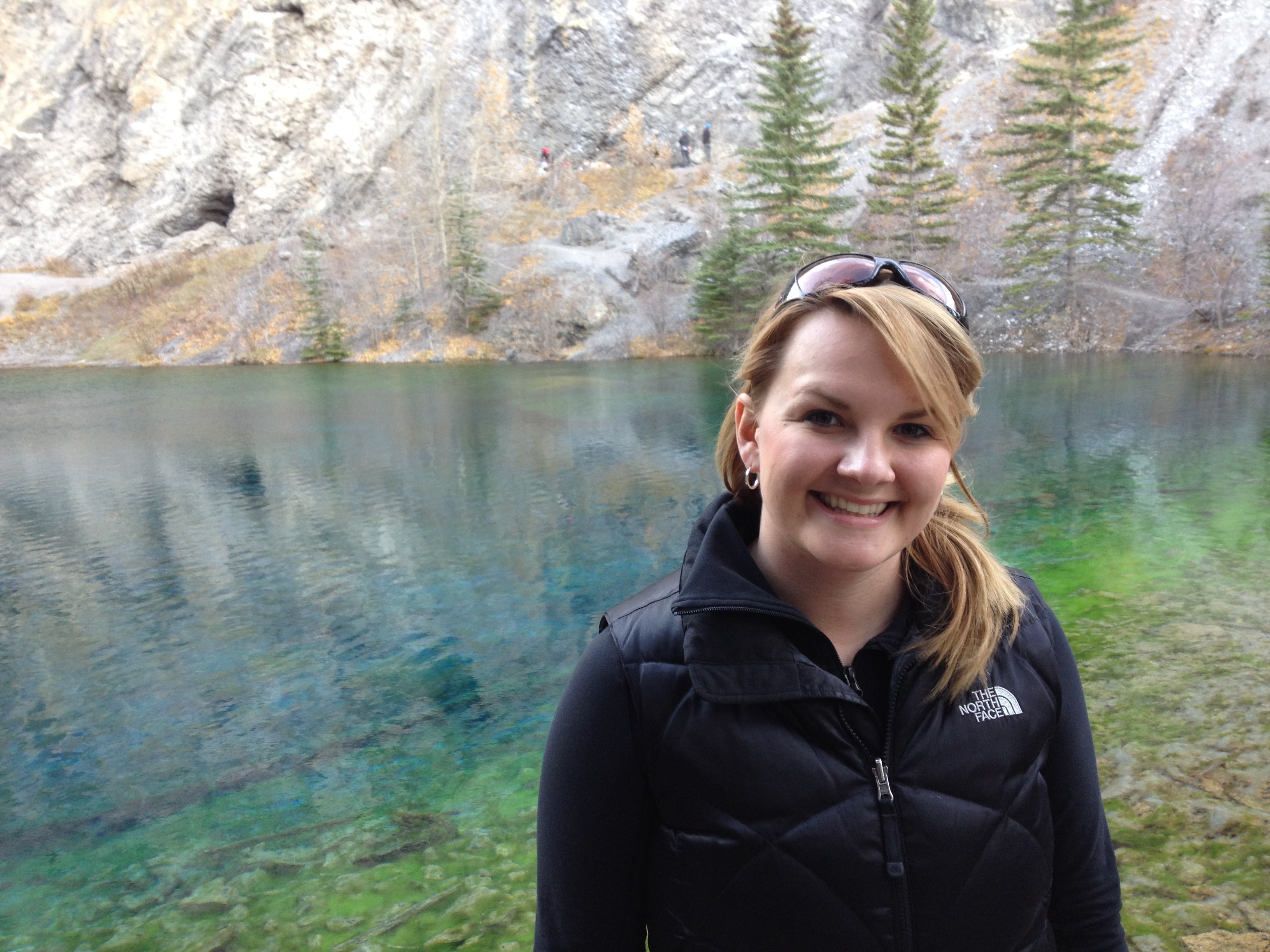Kristin Eccles
Affiliation
PhD Candidate
Biology Specialization in Chemical and Environmental Toxicology
Email: kristin.eccles@uottawa.ca
Research interests
Geospatial Modelling
GIS
Exposure Assessment
Pollution Modelling
Bio
I obtained an Honours B.A. in Health Studies, Geography, and Earth Science from McMaster University. My honours thesis examined the health impacts of high background radiation in Southern India. In 2012, I moved to Calgary to start my Masters of GIS at the University of Calgary, where I learned techniques in GIS, remote sensing, and spatial statistics. After 8 months I transitioned to the MSc. in Geography program to further develop my research skills. Working under the supervision of Dr. Stefania Bertazzon, and co-supervised by Dr. Sylvia Checkley of Veterinary Medicine, I completed my thesis research on environmental risk mapping of well water contamination, post flood in Southern Alberta. During this time I also worked on air pollution modelling and geospatial applications in public health. I am currently working with Dr. Laurie Chan using GIS as a platform to integrate data for applications of spatial analyses in ecotoxicological research.
Research project
Thesis title: Geospatial Modelling of Ecological Health Indicators
-
GIS as a Platform for Landscape Ecotoxicology
-
Fur as a biomarker of enviromental mercury exposure
-
Mapping the relationship between fur mercury in river otter and environmental mercury epxosures
-
Spatial Analysis of Complex Exposures using Spatial Principle Components Analysis
-
Mapping distributions of stress biomarkers in bioindicator species
-
Evaluating ecological health through integration of geographic dose-responses in bioindicator species
Publications
Bramburger, J.J., Eccles, K.M. (2017). A Spectral Graph Theoretic Approach to Evaluating Geographic Spatial Autocorrelation. Manuscript submitted for publication.
Eccles, K. M., Thomas, P. J. and Chan, H. M. (2017). Predictive meta-regressions relating mercury tissue concentrations of freshwater piscivorous mammals. Environ Toxicol Chem. doi:10.1002/etc.3775
Thomas, P. J., Eccles, K. M., & Mundy, L. J. (2017). Spatial modelling of non-target exposure to anticoagulant rodenticides can inform mitigation options in two boreal predators inhabiting areas with intensive oil and gas development. Biological Conservation, 212, 111-119.
Hu, X. F., Eccles, K. M., & Chan, H. M. (2017). High selenium exposure lowers the odds ratios for hypertension, stroke, and myocardial infarction associated with mercury exposure among Inuit in Canada. Environment International, 102, 200-206.
Eccles, K. M., Checkley, S., Sjogren, D., Barkema, H. W., & Bertazzon, S. (2017). Lessons learned from the 2013 Calgary flood: Assessing risk of drinking water well contamination. Applied Geography, 80, 78-85. dio:10.1016/j.apgeog.2017.02.005
Eccles, K.M., & Bertazzon, S. (2015). Applications of geographic information systems in public health: A geospatial approach to analyzing MMR immunization uptake in Alberta. Canadian Journal of Public Health, 106(6).
Bertazzon, S., Johnson, M., Eccles, K., & Kaplan, G. G. (2015). Accounting for spatial effects in land use regression for urban air pollution modelling. Spatial and Spatio-temporal Epidemiology. 14-15 (9–21).
Presentations
Eccles K.M., Pauli, B., Chan H.M. (2017). Using Geographical Information Systems (GIS) for spatial risk assessment and landscape ecotoxicology (Presentation). Canadian Ecotoxicity Workshop. Guelph, Canada.
Eccles K.M., Thomas P.J., Pauli, B., Chan H.M.(2017). Assessing Chemical Mixture Exposures using spatial Principle Components Analysis (sPCA) and Geospatial Methods (Presentation). SETAC Special Meeting: Mixtures. Denver, Colorado, United States.
Eccles K.M., Thomas P.J., Chan H.M. (2017). Modelling fur as a non-invasive biomarker for environmental mercury exposure (Presentation). International Conference on Mercury as a Global Pollutant. Providence, Rhode Island, United States.
Eccles K.M., Thomas P.J., Chan H.M. (2016). Evaluating Mercury Guidelines for Furbearers Using a Predictive Meta-Model (Presentation). Canadian Ecotoxicity Workshop. Edmonton, Canada.
